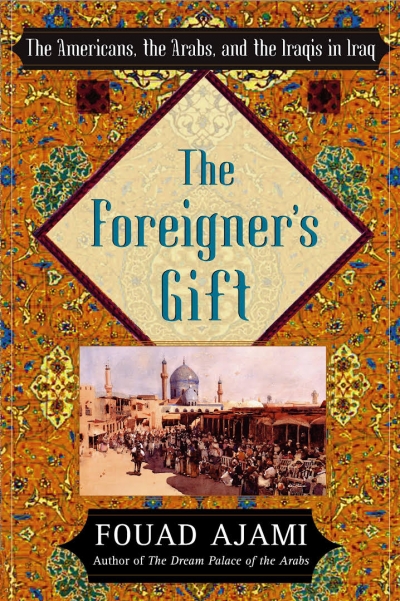



Foreign meddling in the uprisings in Arab countries will force Muslim socio-political organizations to come up with Islamic based designs of governance that are less vulnerable to one-sided Western manipulation.
The US is bound to make another strategic miscalculation in the Middle East as it is failing to come to terms with its declining power.
Zionist Israel was not the only loser in the eight-day war on Gaza. Almost all the Arabian regimes as well as Turkey also lost. The clear winners were Hamas, Islamic Jihad, Islamic Iran and Hizbullah.
With prospects of assuming power looking brighter in the aftermath of the Islamic Awakening sweeping the region, Islamic activists are engaged in a debate about the future political order in the Muslim East. There is near consensus that Islamic parties enjoy broad support, are well organized and will do well whenever elections are held.
One thing has become clear as a result of the movements for dignity and freedom sweeping the Muslim East (aka the Middle East): the old order has been permanently and irrevocably altered.
The uprisings in the Muslim East (Middle East) took virtually everyone by surprise including those in the forefront of these movements. They could hardly believe, especially in Tunisia and the sleepy backwaters of North Africa.
The Islamic awakening sweeping the Muslim East has affected many parts of the world. Malaysia may not be the most likely place to experience revolutionary change of Middle Eastern proportions, but it nonetheless has not remained unaffected.
A large percentage of Muslims worldwide have become quite enamored with the phenomenon of Recep Tayyip Erdogan and the political party — the Development and Justice Party (AKP) — he leads in Turkey.
The Islamic Arab East has fire in its belly. The popular mood is: “fa-al-yasqut al-nizam — down with the regime.” Masses of people are breaking the fear barrier and expressing their century-old, pent-up feelings. Some dictators have been toppled, others are teetering, and still others are trying to change laws and make amends before they, too, are swept away by the people’s fury.
The Muslim East (Middle East) has been in the throes of revolutionary fervor for more than six months. Two dictators have been driven from power; others are teetering on the brink while some are also fighting back with mixed results.
Every June, ceremonies are held to commemorate the passing away of Imam Khomeini in 1989. This year, these ceremonies gain added significance in view of the uprisings underway in the Muslim East. Zafar Bangash, Director of the Institute of Contemporary Islamic Thought, compares the Imam’s leadership with the near-leaderless movements in the Muslim East.
In recent years rapid rapprochement has occurred between Turkey, Iran, Syria and Iraq. The US invasion of Iraq and Afghanistan, the Justice and Development Party’s (AKP) political triumph in Turkey, and Bashar Assad’s succession of his father, were a series of events that brought these countries together.
Egypt is in even greater trouble. Hosni Mubarak, 82, is also suffering from cancer. The men around Mubarak have honed their murderous skills by terrorizing opposition groups like the Ikhwan al-Muslimoon and others that dared stand against Mubarak or his party henchmen in manipulated elections
If paranoia has become the official dogma of US domestic policy, militant unilateralism and hegemonic tendencies born of a sense of raw power have taken hold of Washington’s foreign policies...
Arafat: From Defender to Dictator by Said K. Aburish. Pub: Bloomsbury Paperbacks, London, UK, 1999. Pp: 360. Pbk: £7.99
Ideological blinders often lead ideologues to stumble into serious blunders. That US president George W. Bush’s Iraq adventure has gone awry has escaped no one but the warmongering neo-conservative cabal dominating the Bush White House and the stalwart intellectuals who blithely rationalized the irrational war.
The self-inflicted wounds on American imperialism and Israeli zionism in Iraq and Afghanistan are easily seen. The public memory is blank to the commander-in-chief who claimed the “end of major combat operations” just a few months after initiating the war against Iraq in March 2003.
Hizbullah's stunning victory over Israel has boosted many people's morale, especially Muslims who are struggling for peace and justice all over the world. By defeating the most powerful military machine in the Middle East, Hizbullah has not only demolished the myth of Israel's invincibility but also shaken the Arab potentates in their huge palaces to their boots.
One of the most common strategies used against Islamic Iran in the Arab world is to accuse it of Persian nationalist ambitions over the Arab Middle East. This is often linked with direct or indirect sectarianism, and is known as the “Safavid enterprise”. DR MAZIN AL-NAJJAR discusses this myth.
The construction of the world’s tallest building was disrupted in March when Asian expatriate workers rioted in protest at their working conditions. It was the latest of a series of protests. NASR SALEM discusses the plight of most foreign workers in the region.


